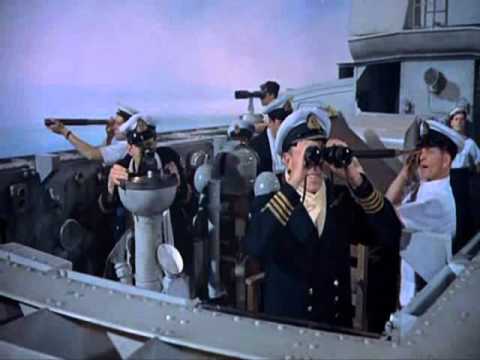KEY CONCEPT
Agency theory describes a contractual relationship between managers and shareholders who have divergent interests. Stewardship theory describes a collaborative relationship between managers and shareholders toward shared goals. Which works best for family businesses? New research reveals that a combination of the two, changing as the business moves through its lifecycle, offers the best recipe for success.
IDEA SUMMARY
Both agency theory and stewardship theory help explain organizational dynamics, although starting from very different assumptions. Agency theory describes the relationship between the shareholders (called ‘principals’) and the company’s managers and executives (called ‘agents’) as a collaboration between parties with different interests: principals are focused on the success of the company while agents are focused on their own success. According to this theory, the relationship is contractual. With agents motivated by self-interest, it is incumbent on principals to make sure that agents act in the best interests of the company. Otherwise, as multiple corporate scandals have revealed, agents will act against the interests of the organization if it benefits them.
While agency theory assumes that the interests of principals and agents diverge, stewardship theory offers a more positive perspective on the relationships between principals and agents. Stewardship sees the interests of the two parties converging. Principals want the success of the company, and agents do as well, because they believe that in the success of the company lies their own success.
One might assume that the stewardship approach offers a company its best chance for success, but the truth is a bit more complicated. Both agency and stewardship generate costs and leave gaps in the optimal management of a company.
The costs of the divergent interests of agency theory are well known:
- The most visible cost of agency theory is ‘moral hazard,’ through which high-level agents (the executives of the company) engage in unethical and illegal behaviour in the pursuit of their own interests.
- Agents share little information with principals, causing principals to have less information than they need to make good hiring decisions. What is known as the ‘adverse selection’ cost results from hiring low-quality, non-qualified applicants.
- Principals must spend time and money developing and negotiating detailed contractual arrangements with agents to ensure that they act in the interests of the company.
- For the same reason, principals must also spend time and money on strong and effective performance review mechanisms.
- Finally, principals must time and money developing and managing alternative compensation schemes, including performance-based rewards and incentives such as equity ownership and profit sharing.
Stewardship theory, however, has its own disadvantages. Stewardship theory is built on trust and assumes that agents will always act in the interests of the organization. As a result, contractual arrangements might be less clear or formal — or in some cases non-existent. Two friends starting a company might not see the need for a contact as they both assume the other will do what is best for their new entreprise.
For family businesses, building the enterprise based on stewardship values can be beneficial in the early stages of the business. Family businesses will draw their early employees from a wide network of family and kin, regardless of experience or capability. The principals believe that their family ‘agents’ will always behave in the interests of the family company.
As the family business grows to a substantial size, however, the stewardship approach shows its weaknesses. The business needs skilled professional managers to take over the reigns and ensure the successful development and implementation of high-volume operations and high-growth strategies. The first step is firing family members unable to meet the new business requirements, a difficult task in a company built on the stewardship values of trust and handshake contracts. The second step is to recognize that the new professional managers will not necessarily have the altruistic motivations of family members; the principals of the family business must introduce agency theory mechanisms including detailed contracts and incentive compensation. In short, the growth of the business over time requires loosening stewardship values and introducing more rigorous agency values.
Thus, neither agency theory nor stewardship theory offers all the answers for a family business. The best approach is to blend the assumptions and mechanism of both, perhaps in different combinations at different stages in the business’ life cycle.
BUSINESS APPLICATION
Organizations cannot survive if they are completely bereft of stewardship values. Purely mercenary CEOs rarely succeed in the long run — and often, not even in the short run. In the 1990s, Al Dunlap, the poster boy for mercenary management, made hundreds of millions of dollars for himself while engaging in a series of accounting frauds that would eventually earn him a top-ten ranking as one of the worst CEOs of all time.
Great leadership, high standards of performance, fair and compassionate human resource policies, and motivated employees taking the risks required for creativity and innovation all require a strong sense of loyalty, trust and identification with the organization, which are fundamental stewardship values.
However, agency values such as structure and systems are also required, especially as the business grows significantly. Clear systems and processes help set expectations and guide performance. In larger family businesses, agency systems will become more dominant in the lower levels of the organization, while stewardship values continue to guide the higher levels of management.
In sum. the most effective management style is to create a flexible ‘symphony’ of agency and stewardship values, of different proportions based on stages in the lifecycle of the business, and working seamlessly together because of clear governance mechanisms that promote and ensure transparency and accountability.
REFERENCES
Collapse of Institutions: Missing Links on Agency and Stewardship Symphony and Learning for Family Businesses. K. Ramachandran & Rachna Jha. Indian School of Business Working Paper (October 2012).











